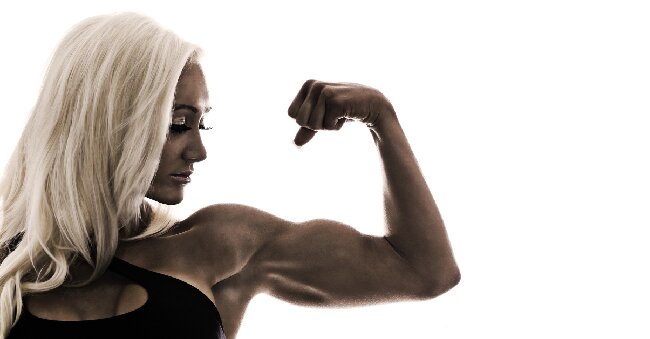
5 Proven Strategies to Maintain Muscle Mass and Hormonal Balance as You Age
As we age, it is important to prioritize the maintenance of muscle mass and hormonal balance to support overall health and well-being.
We will explore the changes that occur in muscle mass and hormonal balance as we age, how hormonal imbalance can contribute to muscle loss, and the benefits of maintaining these aspects of our health.
Practical strategies for maintaining muscle mass and hormonal balance will be discussed, along with dispelling common myths surrounding aging and these factors.
Ultimately, understanding and actively working towards maintaining muscle mass and hormonal balance is crucial for healthy aging.
The Importance of Maintaining Muscle Mass and Hormonal Balance as You Age
Maintaining muscle mass and hormonal balance are crucial aspects of healthy aging. As individuals age, the body undergoes various physiological changes that can impact muscle health and hormonal regulation.
The decline in muscle mass, known as sarcopenia, is a common issue among older adults and can lead to reduced strength, mobility, and independence.
Hormonal imbalances, such as decreases in testosterone or estrogen levels, can also occur with age, affecting metabolism, bone health, and mood.
To combat these changes, incorporating regular resistance training and cardiovascular exercise into one’s routine is essential for preserving muscle mass and maintaining hormonal balance.
A well-balanced diet rich in protein, vitamins, and minerals can support muscle health and hormone production.
By prioritizing these lifestyle choices, individuals can promote overall health and well-being as they age.
What Happens to Muscle Mass and Hormonal Balance as You Age?
As individuals age, they experience a decline in muscle mass and changes in hormonal balance. This process is known as sarcopenia and involves a gradual loss of muscle tissue and alterations in hormone levels.
Sarcopenia leads to a decrease in muscle strength, compromised physical performance, and an increased risk of falls and fractures, highlighting the importance of maintaining muscle mass as one ages. Hormonal fluctuations, such as a decline in testosterone and growth hormone levels, can further contribute to muscle loss and impact overall health. These changes can also affect metabolism, bone density, and energy levels, emphasizing the need for regular exercise, adequate protein intake, and potentially hormone replacement therapy to mitigate the effects of aging on muscle and hormone balance.
How Does Hormonal Imbalance Contribute to Muscle Loss?
Hormonal imbalance can significantly contribute to muscle loss in individuals, especially with age. Factors such as reduced testosterone, growth hormone, and insulin-like growth factor 1 levels, along with elevated cortisol, can lead to accelerated muscle degradation.
Testosterone, a key hormone for muscle growth, decreases naturally as individuals age, resulting in reduced muscle mass and strength. Growth hormone and insulin-like growth factor 1 play vital roles in promoting muscle protein synthesis and growth, with their decline impairing muscle health. Conversely, elevated levels of cortisol, a stress hormone, can trigger muscle breakdown and inhibit muscle repair processes, further exacerbating muscle loss. Therefore, maintaining hormonal balance through lifestyle factors like regular exercise and adequate sleep is crucial for preserving muscle mass.
How Does Muscle Loss Affect Hormonal Balance?
Muscle loss can impact hormonal balance by influencing the production and regulation of various hormones, including thyroid hormones. Decreased muscle mass can lead to alterations in hormone levels, affecting metabolic functions and overall health.
The interplay between muscle tissue and hormonal balance is crucial for maintaining a healthy metabolism. When muscle mass declines, the body’s ability to produce and utilize thyroid hormones may be compromised, leading to a slowdown in metabolic rate. This can potentially contribute to weight gain, fatigue, and other metabolic implications.
Muscles play a significant role in hormone metabolism and sensitivity, so preserving muscle mass through exercise and proper nutrition is essential for maintaining optimal hormonal balance and metabolic health.
What are the Benefits of Maintaining Muscle Mass and Hormonal Balance?
Maintaining muscle mass and hormonal balance offers numerous benefits for overall health and well-being. These include improved physical function, enhanced strength, increased endurance, and better quality of life.
Preserving muscle mass is vital as it contributes significantly to metabolic rate, helping in weight management and reducing the risk of chronic diseases.
Hormonal equilibrium supports mood stability and mental clarity, promoting overall emotional well-being. When muscle mass and hormones are in balance, individuals often experience higher energy levels, improved sleep quality, and better stress management.
This harmony between muscle and hormones plays a crucial role in enhancing physical performance and maintaining a healthy body composition.
Improved Physical Function
Maintaining muscle mass and hormonal balance can lead to improved physical function, including better muscle strength, endurance, and overall physical fitness. It plays a vital role in enhancing mobility, balance, and agility as individuals age.
By preserving muscle mass, individuals can experience increased metabolic rate, which aids in maintaining a healthy weight and reducing the risk of chronic diseases.
Hormonal balance is crucial for various bodily functions, such as energy production and regulating mood. When these aspects are in harmony, individuals can have better coordination, flexibility, and cardiovascular health, thus improving their overall quality of life.
Muscle strength helps in preventing injuries and falls, promoting independence and longevity in everyday activities.
Reduced Risk of Chronic Diseases
Maintaining muscle mass and hormonal balance can help reduce the risk of chronic diseases associated with aging, such as diabetes, osteoporosis, and cardiovascular conditions. Effective hormonal regulation and muscle preservation play a crucial role in preventing age-related muscle loss and promoting better health outcomes.
Hormones like insulin, testosterone, and growth hormone are key players in maintaining muscle mass and metabolic function. By keeping these hormones in balance, individuals can mitigate the onset of insulin resistance, which is a common precursor to diabetes.
Having adequate muscle mass supports bone health, reducing the risk of fractures and osteoporosis. Implementing a well-rounded plan that includes resistance training, adequate protein intake, and stress management can help optimize hormonal balance and preserve muscle mass, ultimately aiding in disease prevention.
Increased Quality of Life
Preserving muscle mass and hormonal balance can lead to an increased quality of life, promoting healthy aging and overall well-being. By addressing lifestyle factors that affect muscle atrophy and bone health, individuals can enhance their longevity and quality of life.
When muscle mass is maintained, individuals experience improved metabolism, strength, and mobility, allowing them to remain active and independent as they age.
Hormonal balance plays a crucial role in regulating numerous bodily functions, including energy, mood, and sleep.
By adopting a lifestyle that includes regular exercise, proper nutrition, and adequate rest, one can prevent muscle loss and support bone health, reducing the risk of fractures and osteoporosis in later years.
This holistic approach to health and wellness enables individuals to enjoy a vibrant and fulfilling life well into their golden years.
How Can You Maintain Muscle Mass and Hormonal Balance as You Age?
To maintain muscle mass and hormonal balance as you age, it is essential to incorporate a combination of regular exercise, balanced diet, adequate protein intake, and targeted resistance training into your lifestyle.
Regular physical activity not only helps in preserving muscle mass but also supports hormonal health. Engaging in a mix of aerobic exercises like jogging or swimming, along with strength training exercises, can aid in maintaining muscle mass.
Focusing on a diet rich in whole foods, including lean proteins, fruits, and vegetables, can provide essential nutrients for muscle maintenance and hormonal regulation.
Specific resistance training routines, such as compound exercises like squats and deadlifts, offer effective ways to stimulate muscle growth and optimize hormonal balance.
Regular Exercise
Engaging in regular exercise, including strength training, weightlifting, and cardiovascular activities, is essential for maintaining muscle mass, hormonal balance, and overall physical health as you age.
Incorporating various forms of exercise into your daily routine offers a multitude of benefits. Tailored exercise regimens help target specific muscle groups, enhancing strength and mobility.
By incorporating a mix of different physical activities, you not only preserve muscle mass but also keep your body’s hormones in check, promoting a balanced and healthy system.
Diverse exercises such as yoga, Pilates, and bodyweight workouts provide a well-rounded approach to overall fitness, ensuring that you engage various muscle groups and prevent the risk of overuse injuries. This variety also keeps your fitness routine interesting and challenging, making it easier to stick to long-term.”
Proper Nutrition
Adopting a balanced diet rich in nutrients, proteins, and supplements is crucial for supporting muscle maintenance, hormonal health, and optimizing muscle protein synthesis. Proper nutrition plays a key role in preserving muscle mass and overall well-being.
Incorporating specific nutrients like vitamin D, calcium, and omega-3 fatty acids is essential for enhancing muscle function and recovery. Protein intake, particularly from sources like lean meats, eggs, and plant-based proteins, is vital for muscle repair and growth. Including dietary supplements such as creatine and BCAAs can further support muscle health and aid in achieving fitness goals. By focusing on a well-rounded diet that meets individual needs, one can effectively sustain muscle mass and promote overall physical performance.
Hormone Replacement Therapy
For individuals experiencing hormonal imbalances or deficiencies, hormone replacement therapy can be a viable option to restore hormonal levels, regulate imbalances, and support muscle health. Consultation with healthcare professionals is essential for personalized hormone therapy.
Hormone replacement therapy works by supplementing the body with the necessary hormones that may be lacking or imbalanced due to various factors. By restoring hormonal levels, this therapy can help individuals manage symptoms such as fatigue, mood swings, and weight gain.
It is crucial to understand that hormone therapy is not without risks, and potential side effects such as bloating, headaches, or breast tenderness may occur. Throughout the course of hormone replacement therapy, regular monitoring by healthcare providers is crucial to adjust dosages and ensure effectiveness while minimizing risks.
What Are Some Common Myths About Aging and Muscle Mass/Hormonal Balance?
Several misconceptions exist regarding aging, muscle mass, and hormonal balance. Dispelling these common myths is essential to promote accurate information about the aging process, muscle health, hormonal changes, and lifestyle factors.
- As people age, there is a common belief that muscle mass inevitably declines. Research indicates that regular physical activity, including strength training, can help maintain and even increase muscle mass in older adults.
Misconceptions about hormonal balance often lead to misunderstandings about the impact of lifestyle choices on hormonal regulation. Understanding the intricate relationship between hormones, diet, exercise, and overall health is crucial for optimal aging and well-being.
You Can’t Build Muscle After a Certain Age
Contrary to popular belief, it is possible to build and preserve muscle even as individuals age. With appropriate exercise, nutrition, and lifestyle habits, muscle wastage can be minimized, and muscle building can continue throughout life.
Regular resistance training is particularly effective in promoting muscle growth and strength, regardless of age. Incorporating a variety of exercises that target different muscle groups can help maintain overall muscle mass. Adequate protein intake is essential for supporting muscle health and repair. By combining strength training with proper nutrition, older adults can enhance their muscle function and protect against age-related muscle loss. Consistent physical activity, such as weightlifting and bodyweight exercises, also plays a crucial role in combating sarcopenia, the age-related decline in muscle mass and function.
Hormone Replacement Therapy is Dangerous
There is a common misconception that hormone replacement therapy is inherently risky or dangerous. In reality, when administered under medical supervision and tailored to individual needs, hormone therapy can effectively address hormonal imbalances, deficiencies, and promote overall well-being.
Professional guidance is crucial in determining the appropriate hormone therapy approach for each individual. By consulting with a healthcare provider specializing in hormone management, individuals can receive personalized treatment plans that consider their specific needs and health status. This personalized approach helps minimize potential risks and maximize the benefits of hormone therapy.
Hormone therapy is not just about addressing symptoms; it plays a vital role in improving quality of life, enhancing energy levels, and supporting mental clarity.
Only Men Need to Worry About Hormonal Balance
Another common myth is that only men need to be concerned about hormonal balance. In reality, both men and women undergo hormonal changes with age, and maintaining optimal hormone levels is important for overall health and well-being.
Hormones play a crucial role in various bodily functions, influencing metabolism, energy levels, mood, reproductive health, and more. For women, fluctuations in estrogen and progesterone during the menstrual cycle, pregnancy, and menopause can significantly impact their well-being. Similarly, men experience changes in testosterone production as they age, affecting muscle mass, libido, and overall vitality.
Hormonal imbalances in either gender can lead to a range of symptoms, including fatigue, weight gain, mood swings, and reduced libido. Therefore, prioritizing hormone regulation through lifestyle choices and, if necessary, medical interventions is essential for both men and women.




No Comments